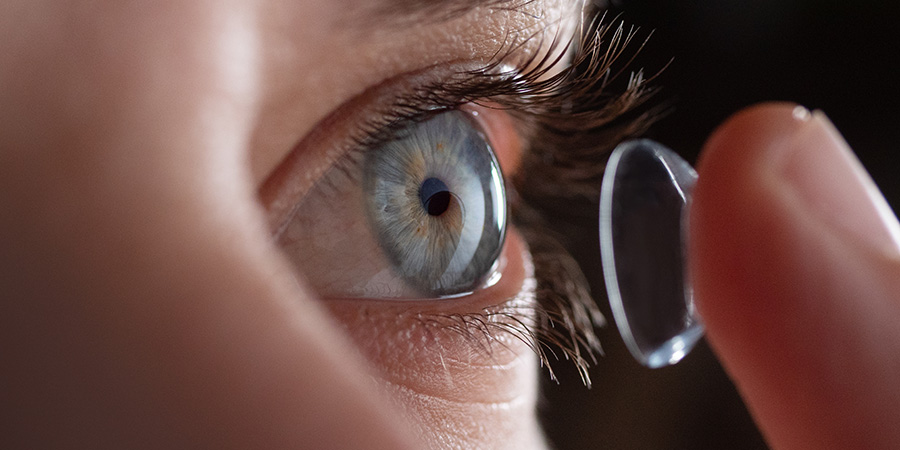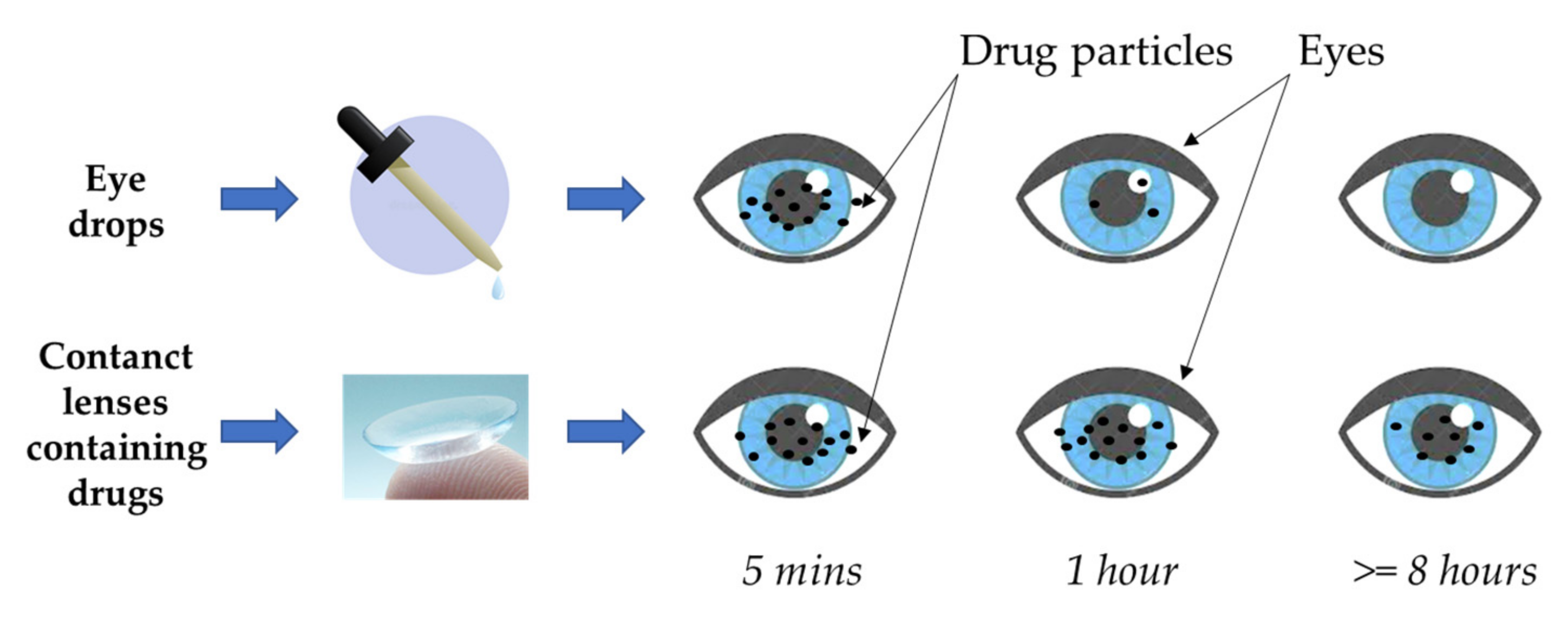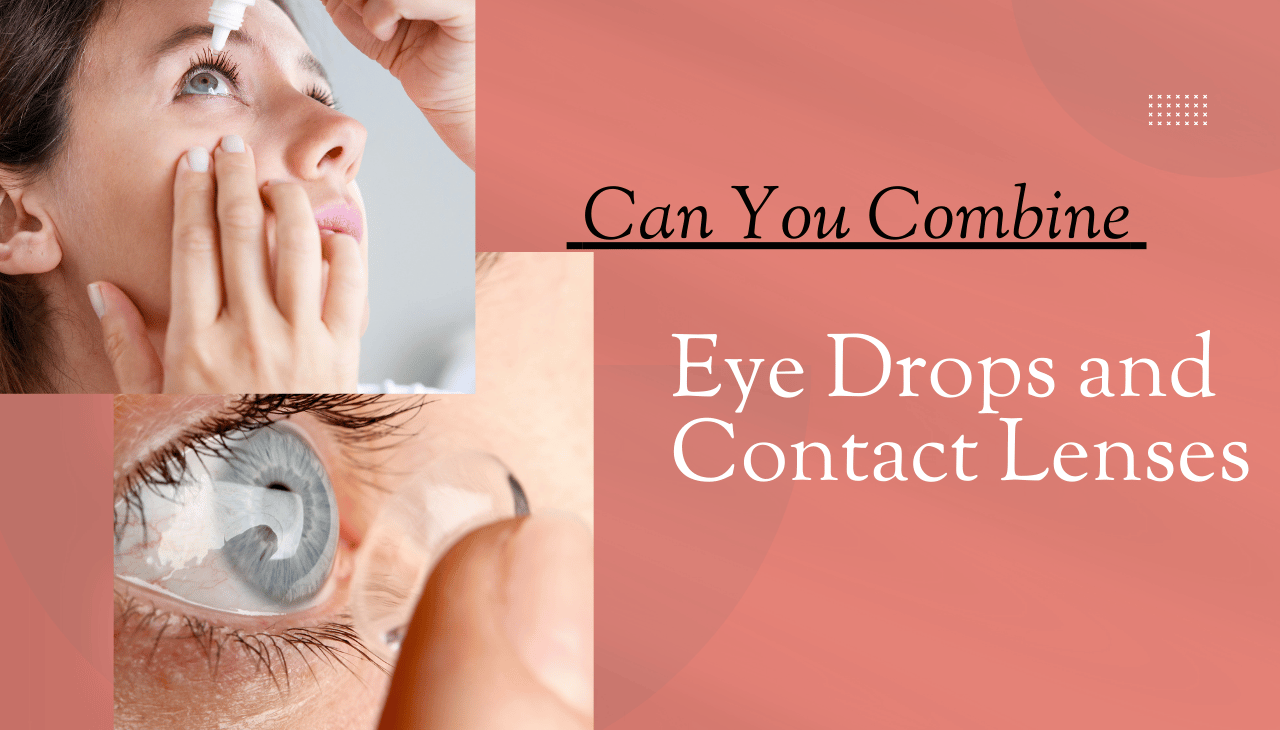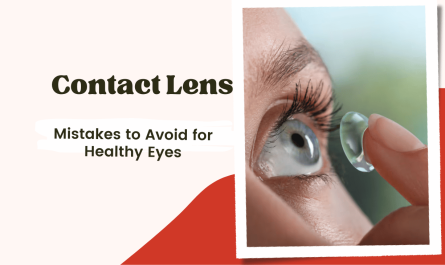If you wear contact lenses, you probably understand the occasional discomfort that can come with them. Dryness, redness, irritation, or the feeling of something being in your eye—these are common issues that make many lens users reach for eye drops.
But a question arises: can you safely use eye drops while wearing contact lenses?
This blog explores the relationship between contact lenses and eye drops. We’ll break down the types of eye drops, when and how they should be used, what to avoid, and tips to keep your eyes healthy and your lenses comfortable.
Understanding the Basics
What Are Contact Lenses?

Contact lenses are medical devices placed directly on the cornea of the eye to correct vision. They are a popular alternative to eyeglasses and come in various types—daily, bi-weekly, monthly, rigid gas permeable, and more.
Contact lenses sit on the tear film that covers the surface of your eyes. This makes their interaction with eye drops crucial, as anything introduced into the eye can potentially affect the lens and, in turn, your vision and eye health.
What Are Eye Drops?
Eye drops are saline-based liquid medications or lubricants used for a variety of eye conditions. These include dryness, allergies, infections, glaucoma, and inflammation.
Some eye drops are for temporary relief; others are part of a prescribed treatment plan. The ingredients vary—from lubricants and antihistamines to antibiotics and anti-inflammatories. Some contain preservatives; others are preservative-free.
Key Point
Not all eye drops are created equal, and not all of them are safe to use with contact lenses. Using the wrong drop while wearing lenses can lead to cloudiness, discomfort, or even serious damage to your eyes and lenses.
Why Eye Drops and Lenses Can Conflict

Many people think of eye drops as harmless because they’re over-the-counter products. But when you’re wearing contact lenses, things are different. The lens can trap the liquid and its ingredients against your eye longer than normal, increasing exposure to preservatives or medications.
Common Issues
- Dry Eye Syndrome:
A common problem for lens wearers. Contact lenses can reduce oxygen flow to the eye, leading to a dry or gritty feeling. - Irritation or Redness:
Often caused by environmental factors, lens material, or build-up of deposits. - Allergic Reactions:
Pollens or allergens can stick to lenses. Allergic reactions may cause itchy, red eyes. - Medication Interference:
Medicated drops can react with contact lens material, causing damage or changing lens clarity.
Safe Solutions and Best Practices
Knowing what drops to use—and when—is the key to combining contact lenses with eye drops safely.
1. Use Contact Lens-Compatible Rewetting Drops
Rewetting drops are specially formulated to hydrate your eyes while you’re wearing contact lenses. They help reduce dryness, irritation, and blurred vision caused by lens dryness.
These drops are labeled clearly and can be used as needed throughout the day.
Tip: Always carry a small bottle in your bag, especially if you work on screens or in air-conditioned environments.
2. Remove Lenses for Medicated Eye Drops
If you’re using eye drops for an eye infection, inflammation, or allergy treatment, always remove your lenses first.
Once the drops are applied, wait at least 15–20 minutes before reinserting your lenses. This ensures the medicine absorbs properly and reduces the risk of chemical buildup on the lens surface.
3. Choose Preservative-Free Drops
Preservatives, like benzalkonium chloride (BAK), can stick to your lenses and cause toxicity or allergic reactions. If you’re a frequent drop user, opt for preservative-free formulations, especially if you have sensitive eyes.
4. Follow Usage Instructions Carefully
Never overuse eye drops. Follow the dosage recommendations. Overuse can disrupt your eye’s natural tear film or lead to “rebound redness.”
5. Store and Handle Properly
Always check the expiry date, keep the bottle clean, and avoid touching the dropper to your eye or fingers. This prevents contamination and infections.
Additional Tips for Lens Users
- Blink Frequently:
When using digital screens, you blink less, which causes dryness. Remember to blink more often. - Stay Hydrated:
Drink plenty of water throughout the day to maintain natural tear production. - Avoid Eye Rubbing:
Even if your lenses feel dry, never rub your eyes. It can shift or damage the lens and irritate the cornea. - Regular Eye Exams:
Schedule routine checkups to monitor lens fit, eye health, and update prescriptions as needed. - Know When to Stop Wearing Lenses:
If your eyes are inflamed, infected, or overly dry, stop wearing lenses temporarily and consult your eye doctor.
Professional Consultation: Laxmi Eye Hospital
When it comes to eye care, having expert guidance can make all the difference. Laxmi Eye Hospital is one of Mumbai’s most respected chains of eye hospitals, serving patients for over 30 years.
Known for its team of experienced ophthalmologists, transparent treatment approach, and modern facilities, Laxmi Eye Institute offers personalized solutions for vision correction and eye health.
Specialties Include:
- Specs Removal / LASIK (including Bladeless, Contoura Vision, ICL & IPCL)
- Cataract Treatment (SICS & Phacoemulsification)
- Glaucoma Management
- Diabetic Eye Care
- Corneal Disease & Keratoconus
- Retina Treatment
- Pediatric Ophthalmology
- Eye Donation and Transplant Services
Whether you’re dealing with dry eyes, lens-related issues, or looking to explore LASIK options, Laxmi Eye Hospital offers a holistic, affordable, and advanced eye care experience.
Clinic Locations:
Panvel:
Mulla Hamid Rd, Old Panvel, Navi Mumbai, Maharashtra 410206
Kharghar:
Office 108–110, 1st Floor, Anant CHS, Plot 31, Sector 04, Kharghar, Navi Mumbai, Maharashtra 410210
Kamothe:
Shop No. 26/27, Near ICICI Bank, Pratik Gardens, Sector 34, Kamothe, Navi Mumbai, Maharashtra 410209
Dombivli:
1st Floor, Laxmi Eye Institute, SS Business Park, Gharda Circle, Azde Gaon, Tata Power Company Limited, Dombivli East, Maharashtra 421201
To book an appointment, call or visit https://laxmieye.org/
Frequently Asked Questions (FAQs)
1. Can I use regular eye drops while wearing contact lenses?
No. Regular drops may contain preservatives or chemicals that are not lens-compatible. Use rewetting drops labeled “safe for contact lens use.”
2. What happens if I use the wrong eye drops with lenses?
You may experience blurry vision, discomfort, allergic reactions, or even lens damage. Always check the label before use.
3. How soon can I wear my lenses after using medicated drops?
Wait at least 15–20 minutes to allow absorption and prevent lens contamination.
4. Are rewetting drops the same as artificial tears?
Not exactly. Artificial tears are for dry eyes and may not be safe for lens wearers. Rewetting drops are made for use with lenses.
5. Why do my eyes get dry when wearing lenses?
It could be due to screen exposure, low humidity, poor lens fit, or natural tear deficiency.
6. Are preservative-free drops better for contact lens users?
Yes. They reduce the risk of irritation and are safer for frequent use.
7. Can I use allergy eye drops with contact lenses?
Only if the label says they are lens-compatible. Otherwise, remove lenses before use and wait before reinsertion.
8. When should I see a doctor for dryness or discomfort?
If symptoms persist even after using rewetting drops or if you notice pain, redness, or discharge, consult an eye specialist immediately.
Final Takeaway
Using eye drops while wearing contact lenses can be safe—but only if done correctly. Understanding the types of drops, when to use them, and how they interact with your lenses is crucial to maintaining comfort and avoiding complications.
Don’t guess or rely on generic products. Your eyes are unique, and so are their needs. If you’re unsure which drops are best for you or if you’re experiencing persistent symptoms, consult a qualified eye specialist.
At Laxmi Eye Hospital, expert ophthalmologists can guide you through every step of your eye care journey—from choosing the right lenses to treating dry eyes and exploring LASIK options.
Your vision deserves nothing less than the best care. Take control of your eye health today.


